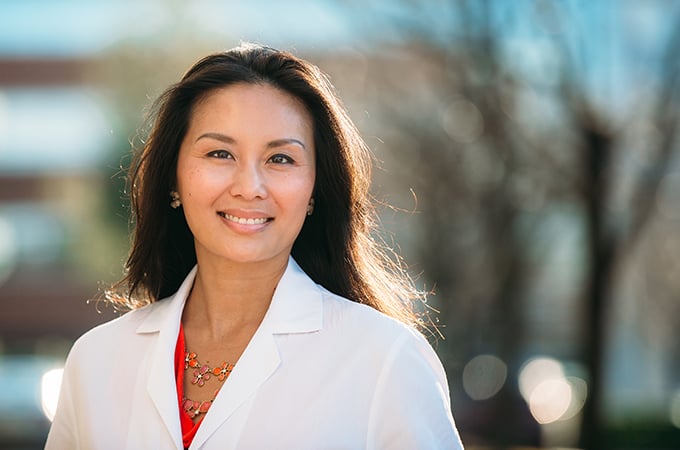Read the full article “Does health insurance cover egg freezing?” by Rachel Lustbader
Recently, Rachel Lustbader, writer for Healthcare.com, reach out to triple board certified reproductive endocrinologist, Kara D. Nguyen, M.D., M.P.H., of SGF’s Reading, PA and Harrisburg, PA offices, to learn the ins and outs of egg freezing: what is it, what does the process look like, is it safe, will health insurance cover it, and how much should you expect to spend.
Dr. Nguyen answered these egg freezing questions for all women who wish to have a baby someday and explained a key reason why egg freezing at SGF is unique.
Egg Freezing for Future Pregnancy
According to Lustbader, “as the average childbearing age continues to go up, it’s important for women to consider fertility treatments such as egg freezing that can increase the chance of a successful pregnancy later in life.”
Egg freezing is the fertility treatment process in which a patient’s ovaries are stimulated and eggs are retrieved and frozen to be used at a later time. As women age, their egg quality decreases along with the quantity. Therefore, freezing eggs give women the time that their biology won’t. Many describe egg freezing as a unique form of insurance—should they have trouble conceiving later in life, their frozen eggs are available.
Learn more about egg freezing success rates.
Two Common Reasons Women Freeze Their Eggs
Under what circumstances would a woman decide to freeze her eggs? According to Dr. Nguyen, the two most common reasons women decide to freeze their eggs are:
- Elective fertility preservation (they may be focusing on their careers, going through grad school, traveling, waiting for the right partner, waiting to be in the right financial situation, etc.)
- Fertility preservation in the face of a medical condition (as in the case where cancer treatments may affect ovarian reserve and reproductive potential)
At Shady Grove Fertility, while women can freeze their eggs for elective purposes in their 30s to early-40s, the majority of our patients are 37. Our recommendation is for women considering to freeze, to do so in their early- to mid-30s while their fertility is still near its peak. However, each woman’s fertility is unique and each woman’s family building goals and situations are unique.
Dr. Kara Nguyen Explains Egg Freezing Testing at SGF
To help women decide if and when to freeze, Dr. Kara Nguyen explains the critical importance of the initial step of the SGF egg freezing process:
“We first test the patient’s fertility to evaluate her current status and if egg freezing is a good choice for her right now. Following testing, there is an extensive discussion with a reproductive endocrinologist to determine if egg freezing is the right choice, with clear expectations of possible benefits, limitations, and alternatives to family building.”
Each woman’s fertility is unique. While the average age a woman’s fertility begins to decline is 35, some women’s fertility decline will start earlier and some may start later. We also encourage women to consider their family building goals and the timing of their educational and career goals as they evaluate their future reproductive plans.
Read the full story to learn more about egg freezing benefits. To learn more about egg freezing in Pennsylvania, to better understand the process, or for more information about Shady Grove Fertility’s exclusive egg freezing financial programs, call 1-877-411-9292 to speak with one of our New Patient Center Liaisons. You may also fill out this form to schedule an appointment or register for one of our upcoming patient educational events.






